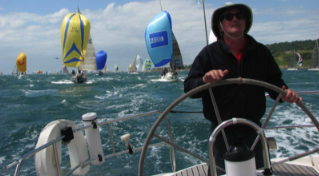Marine Conservation Zones encroaching on sailors
Sailors across England are being urged to have their say about the future of the seas and marine life before it’s too late. Yachtsmen have until Autumn 2010 to come forward and share their information and observations about the areas of sea they use, so that leisure interests can be taken into account in the planning of new Marine Conservation Zones (MCZs).
MCZs will protect nationally important marine wildlife, habitats, geology and geomorphology and will have a range of protection levels that reflect the level to which a particular habitat or wider ecosystem needs to be safeguarded.
Four regional projects have been set up to work with both leisure and commercial sea users to make recommendations for MCZs. These projects are Balanced Seas, Finding Sanctuary, Net Gain and Irish Sea Conservation Zones, and between them they cover the inshore waters of England and the offshore waters of England, Wales and Northern Ireland. Together they form the Marine Conservation Zone Project, which Defra, the Joint Nature Conservation Committee and Natural England have set up.
No MCZs have yet been proposed, with the sole exception of Lundy Island who’s protected east coast had its designation changed from a Marine Nature Reserve to a Marine Conservation Zone in January 2010.
Central to all four projects are stakeholder groups incorporating a wide range of water users and interest groups that will make recommendations for MCZs to Government in June 2011. Local groups will work alongside the stakeholder groups so that local information and views can also be considered.
The MCZ projects want to work with sailors and recreational boaters to ensure that the best result is achieved for everyone involved. They are collecting information about where people go at sea to create maps of commercial and leisure activity for each region.
In the south-west, Finding Sanctuary’s Boating & Watersports Liaison Officer, Beth Henshall, has already conducted over 150 interviews with sailing and boating clubs and individual boaters. Beth said: “By the end of our research work we aim to have a definitive map showing how our seas are currently used. Accurate information about where sailors and boaters go is essential, as this is the information that representatives on the stakeholder groups will use. If they don’t know which areas are important to you, it will be more difficult to avoid them when planning MCZs.
“2010 is a critical year – this isn’t an opportunity that is likely to occur again in the near future and the decisions that are made could have an impact on a whole range of waterborne activities. The message has to be – make your voice heard now before it is too late.”
The projects are looking for input from a wide range of leisure sea users who could find their activities affected by the creation of new Marine Conservation Zones (MCZs). Possible restrictions could include no anchoring areas, new speed limits and no-take zones.
Any club, association or individual who wants to contribute information can do so by contacting their relevant MCZ project.
Balanced Seas (South-east)
www.balancedseas.org
Email: balancedseas@kent.ac.uk
Tel: 01227 827 839
Finding Sanctuary (South-west)
Share your information online: www.mczmapping.org




